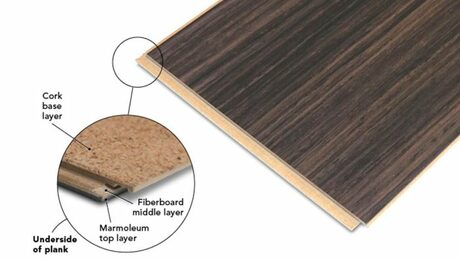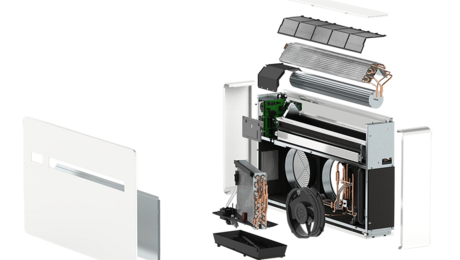Calculating heat pump energy use
Greetings.
We’re building a house and have a heat load calc (30k) and now I’m trying to figure out how much electricity a heat pump would use. We have solar planned, and given San Diego’s insane .60kwh rate, I need to decide if we have enough expected production to cover electric heat.
I can’t seem to find a formula or calculator for this.
Thanks for any pointers.
GBA Detail Library
A collection of one thousand construction details organized by climate and house part









Replies
60¢ a kwh!!! Whatever you do, put lots of solar panels on the roof. Ordinarily, I think batteries are much too expensive. But charging a battery with solar, for use when the sun isn't out, should save you money. I assume your need is primarily for air conditioning, so get a heat pump with the highest SEER.
30,000 btu/ hour seems like a lot of heat for San Diego. My best guess is that in Maine, my two heat pumps use around 3000-3500 kwh/ year. My heat load is smaller than 30k, but we heat from late October until mid April.
Thanks for the responses from everyone. I'll address comments here and below.
YEAH, $0.60. SDGE has the nerve to call their .41 double-secret off-peak rate "a super saver". And we can count on that rising by double the rate of inflation for a long time.
Batteries are really expensive for sure, and I'm skeptical about their life . I'd rather nail my usage and production, and have little residual to worry about.
Our solar plan calls for about 6.8kwh of panels, facing a combo of west and south. We could cram more on there, but they'd be piecemeal.
The 30k heat load is my calculation from an online tool, in which I was conservative and rounded up. It's possibly significantly lower (I will find out in a month or so from Energy Vanguard), BUT this is a 3600 sq ft house, with a lot of glass, and a vaulted ceiling.
It’s not too bad:
1. Looks like San Diego averages 1300 heating degree days (base 65).
2. 30,000btu/h divided by the design temp (45 I think) when expressed as a HDD is 30,000/20 = 1500 Btu/HDD/hr.
3. 1300 x 1500 x 24 (hours/day) is 46,800,000 Btu/year.
4. Divide by 3412 to get 13716 kWh output.
5. Divide by COP to get kWh input. In your climate, a high COP should be expected. Using COP = 4.5, 3048 kWh are needed to buy, about $1800/year. That’s probably about 2kw of solar, so maybe $6-7k additional, pre-subsidies? Less if other solar is already planned.
All that said, load calcs are typically junk and skew very high. You’re in a perfect climate and are building a new house - it should be low! For reference, my house is 100+ years old, has a design temp of 15 F and has a heat loss about half of yours. I use about 2000 kWh to heat, with a less efficient heat pump operating in less favorable conditions.. I wouldn’t be shocked if your true heat loss, and therefore annual usage, was much lower.
Yes, that heat load calculation is quite suspect. But it looks like San Diego has a design temperature of 23 F! Who would have thought. So that means the kWh number is more like 6500.
Note that that's just heating--you need a similar calculation for cooling.
And the 30 kBTU/h is still suspect, even for 23 F design temperature.
Dang I see that on Energy.gov.
http://cms.ashrae.biz/weatherdata/STATIONS/722900_s.pdf This one is 7 C.
23F is just wrong, looks like the lowest temp ever recorded there was 25, over a 100 years ago. I wonder how this error made its way into the document.
That would be important to sort out before buying a vastly oversized heat pump!
I wonder whether San Diego county is big enough to have some widely differing microclimates--maybe that could explain it?
"I wonder whether San Diego county is big enough to have some widely differing microclimates"
Exactly. SD stretches from the coastline into the desert. Giant differences. We're a couple hundred feet from the ocean, so our climate is closer to San Francisco's than LA's. When trying to figure out our likely solar production, I had to locate users within a block or two of the ocean, because our May/Jun production is at best flat, and often below, April, thanks to constant clouds. Looking at arrays just a mile or so inland improves production significantly.
Re: temperatures, the 99% line is probably around 38F, definitely not 23F. It is, however, much chillier here than people think, most of the time.
As far as cooling goes, we barely need a/c. Handful of days per year.
Thanks for the calc example, Paul. Makes sense. I think (think) I will have about 3000 kwh of "excess" production, which more or less covers your calc of 3048 kwh.
With our relatively stingy net metering (assuming we even get it, grandfathered in), we'll be earning ~0.30 for most of our production, and buying at 0.60 (for now) for most of our use. So that $1800 comes in more like a net of $900, I think. And that's just a bit lower than my calc for heating the house with natural gas (forced air, not radiant....of course I'd love radiant).
Update on the heat load calc. Being more precise, less conservative, and rounding down rather than up, I get more like 24,000 btu for the 3600 sq ft.
And that new heat load calc...is that based on the 38 F design temperature?
41F.